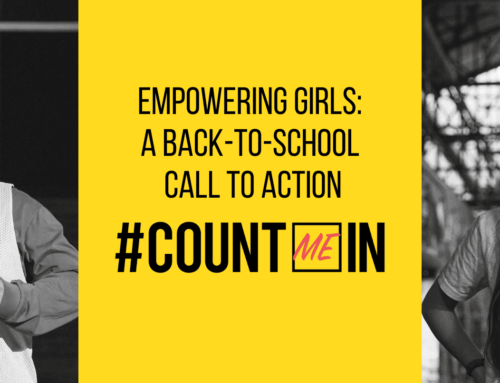This article was originally published on Puzzling Posts.
We went on a family vacation late last year. It was a wonderful family experience where the girls got to play in the ocean, watch monkeys swing through trees, and learn that there are more places on earth than Ottawa.
And yes, we pulled our oldest daughter from school for the week to make this happen. Away from math classes, away from science projects, and away from whatever style of dodgeball teachers are able to get 6-year-olds to participate in.
Doing this, I’m convinced, was a good idea, but there were consequences. On her return she had a spelling test that we didn’t have time to help her prepare for. We eschewed or usual memorize the words on the drive in to school routine is exchange for sleeping in the backseat. Predictably, the young girl who had been scoring 9 out of 10 or 10 out of 10 on every test we’d helped her prepare for leading up to this one, brought home a test with the numbers 4 out of 10 marked in read at the top. It also wore the words “you can try again if you’d like.”
And I was grateful for that little note. Because in my “dad’s mind” I imagined a young girl who would be torn to pieces at the idea of a 4 out of 10. We had praised her for her wonderful scores before, letting her know that her studying efforts were paying off with great results. We hadn’t awarded her medals or anything for her efforts, but there is no way we didn’t let her know how proud we were of her high scores. And then this, what we in our grade-obsessed culture consider “failure”—getting fewer than half the answers right on any given assessment. I expected she would know she didn’t do a good job.
In other words, I expected my daughter to feel shame for failing.
The more I think about it, the more I realize almost every fear I have centers on the idea of my daughters succeeding or failing at anything they try.
“We should see if she wants to go to soccer camp again.”
“Yeah, she might like that. But what if she has a hard time making friends there? Or what if she doesn’t think she’s good enough?”
Or
“We should get this book, she would love to read about dinosaurs.”
“Yeah but it’s written for kids older than her, what if she struggles and it makes her hate reading.”
Without noticing it, I’ve filled my days with a series “yeah, buts,” that try to make excuses for my daughters not being perfect at something. I come up with reasons why they might fail before they have even tried to do something.
Our kids need to fail. And we need to fail with them. And we need to celebrate attempts more than we fear failure.
Amazingly, the best example of not giving a shit about succeeding and caring much more about doing, comes from our kids. Like when they’re spinning around in circles listening to the Avett Brothers and they call for me to dance with them.
“I can’t, I don’t know how to dance,” I tell them, trying to excuse myself because I’m afraid my herky jerky dance moves might result in a bloody nose and a trip to the hospital for one of my kids.
“Dad, relax, all you do is spin in circles!”
And then I watch them for a few seconds before realizing they are right. The only way I could have failed at dancing with my daughters would be to have not danced at all.
Reshma Saujani, the founder of Girls Who Code, gave a TED talk on the need for girls to be brave, not perfect. In her video, she talks about a young girl who couldn’t figure out the correct code for something she was working on. She described what she showed her teacher as being just a blank screen even though she had already tried a multitude of ways to get the code to work. Because she was unsuccessful, she deleted it all. She would rather have showed nothing than to have showed a failed attempt.
And it is irrational to expect a girl to feel brave, and to take chances, if their parents couch the excitement of experiences with the fear of them failing. What chance do I give my daughters of doing great things if I instil in them the idea that shame awaits those who try new things and don’t succeed?
Failing should be praised as the result of dabbling in the unknown. So, I hope my girls fail. And I hope I fail. And I hope we fail together. I hope we fall into ponds because we tried to catch a fish with our bare hands. I hope we get rejection letters because we’ve dared send our stories to international publishers. I hope our tent collapses on us because we’ve jumped too high on our air mattress on a starry summer night.
And I hope because we fail together we produce more important ideas than this world can handle.
Learn More
- 11 Ways Dads Can Help Raise Strong Daughters
- 6 Ways to Raise Confident Girls: Tips from Canadian Women’s Foundation Parents
- Want to See More Girls in STEM? Do Away with Gender Stereotypes
- Have you seen the #GirlPowered messages on www.girlpowered.ca? Share your favourites online and with the girls in your life!
- Sign up for our e-newsletter to have our latest stories and resources sent to your inbox.
- Follow us on Facebook and Twitter to join a national conversation on empowering girls.








